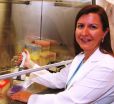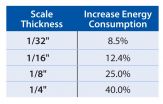(Press-News.org) COLUMBUS, Ohio – Mosquitoes make proteins to help them handle the stressful spike in body temperature that's prompted by their hot blood meals, a new study has found.
The mosquito's eating pattern is inherently risky: Taking a blood meal involves finding warm-blooded hosts, avoiding detection, penetrating tough skin and evading any host immune response, not to mention the slap of a human hand.
Until now, the stress of the hot blood meal itself has been overlooked, researchers say.
Scientists have determined in female mosquitoes that the insects protect themselves from the stress of the change in body temperature during and after a meal by producing heat shock proteins. These proteins protect the integrity of other proteins and enzymes, in turn helping the mosquitoes digest the blood meal and maintain their ability to produce eggs.
Tests in two other types of mosquitoes and in bed bugs showed that these insects undergo a similar response after a blood meal.
"These heat shock proteins are really important in a lot of stress responses. Our own bodies make these proteins when we have a fever," said David Denlinger, professor of evolution, ecology and organismal biology at Ohio State University and senior author of the study. "It's one of those things that, in retrospect, seems obvious – that blood meals might cause a stress like that. But it hadn't been pursued before."
The research appears this week in the online early edition of the Proceedings of the National Academy of Sciences.
Denlinger and colleagues conducted experiments in the Aedes aegypti mosquito, which is a carrier of yellow fever.
The researchers placed sensors on female mosquitoes and observed that upon taking in a blood meal on a chicken, the insects' body temperatures increased from 22 to 32 degrees Celsius (71.6 to 89.6 Fahrenheit) within one minute – among the most rapid body temperature increases ever recorded in a cold-blooded animal. After the feeding, their body temperatures decreased to room temperature within a few minutes.
In response to that blood feeding, the mosquitoes' level of Hsp70 – heat shock protein 70 – increased nearly eightfold within one hour and remained at least twice as high as usual for 12 hours. The increase in these proteins was most pronounced in the midgut area.
Denlinger and colleagues tested potential triggers for this protein increase by injecting the mosquitoes with a saline solution at two temperatures: 37 degrees Celsius (98.6 degrees Fahrenheit) and room temperature. Only the warmer saline generated an increase in Hsp70, suggesting that the elevation in temperature associated with the meal, rather than the subsequent increase in body volume, is what causes the generation of those proteins.
Sometimes, mosquitoes feed on cold-blooded amphibians, which should not cause the same amount of stress. To test that theory, the researchers also gave mosquitoes a feeding opportunity on cooler blood, which failed to generate an increase in heat shock proteins.
And what happens if this protein is not produced? The researchers manipulated the mosquitoes' RNA to figure that out.
When the scientists knocked down expression of the gene that encodes the heat shock protein, the amount of Hsp70 production was reduced by 75 percent. Under those circumstances, mosquitoes still ate a normal blood meal. But blood protein levels remained elevated for a longer period of time, suggesting that digestion of those proteins was impaired. In addition, egg production decreased by 25 percent when the heat shock protein was suppressed.
Heat shock proteins help maintain the three-dimensional integrity of enzymes and proteins when temperatures rise suddenly, and can target damaged proteins and enzymes for elimination, Denlinger said. "We think that in this case, they are important to maintaining the integrity of some critical enzymes and proteins involved in digestive processes. When we knock out those proteins, it impairs digestion a bit and as a result the mosquitoes don't lay as many eggs," he said.
The researchers observed similar body temperature increases and elevations in Hsp70 levels in three other insects: Culex pipiens and Anopheles gambiae, mosquitoes that are carriers of West Nile virus and malaria, respectively, and Cimex lectularius, the bed bug. Though new knowledge about the genetics of these insects, especially the mosquitoes, might someday inform attempts to kill them as a method of disease control, Denlinger said the primary contribution of this research is better understanding of how mosquitoes protect themselves in this novel way.
###
This work was supported by grants from the National Institutes of Health/National Institute of Allergy and Infectious Diseases and the National Science Foundation.
Co-authors include Joshua Benoit, a former Ohio State graduate student who is now a postdoctoral researcher at Yale University, and Giancarlo Lopez-Martinez, Kevin Patrick, Zachary Phillips and Tyler Krause of Ohio State's Departments of Entomology and Evolution, Ecology and Organismal Biology. Lopez-Martinez is now at the University of Florida.
Contact: David Denlinger, (614) 292-6425; denlinger.1@osu.edu
Written by Emily Caldwell, (614) 292-8310; caldwell.151@osu.edu
END
AMES, Iowa - Like people, plants experience stress. And also, like people, the response to that stress can determine success.
People can exercise, or rest, or talk about the problem.
For plants, ways to deal with stress are internal. And ISU researchers are trying to understand how they do it.
Stephen Howell is a professor of genetics, development and cell biology and former director of the Plant Sciences Institute at ISU. His research is featured in the current issue of the journal Proceedings of the National Academy of Sciences.
"We've discovered a new arm of ...
AUSTIN, Texas-A new low cost test for acute pancreatitis that gets results much faster than existing tests has been developed by scientists at The University of Texas at Austin.
The sensor, which could be produced for as little as a dollar, is built with a 12-cent LED light, aluminum foil, gelatin, milk protein and a few other cheap, easily obtainable materials.
The sensor could help prevent damage from acute pancreatitis, which is a sudden inflammation of the pancreas that can lead to severe stomach pain, nausea, fever, shock and in some cases, death.
"We've turned ...
Following a government backed business start-up scheme, search figures obtained by Google and Experian indicate a significant increase in people searching online for advice on business start-up. Bird and Co Creative, a graphic and web design company, has also experienced a rise in online leads relating to new business marketing. Traditionally, the close of the financial year brings a dip in online searches for terms relating to business start-up. However, this year the trend has changed dramatically - searches for 'business plan UK' were up 60pc and 'small business loan' ...
The formation of the new coalition government has brought with it numerous changes. The Equality Act 2010 is now under review with considerations to scrap it altogether. Following years of campaigning the act was finally put in place to unify the existing equality laws. The Institute of Equality and Diversity Practitioners (IEDP) are challenging the government's proposed changes and have called a number of emergency meetings to discuss their challenge. Scrapping the act will weaken their powers and void the hard work which has been put into promoting equality and diversity ...
VIDEO:
University of Missouri veterinarians have changed the way veterinarians treat diabetes in animals by adapting a device used to monitor glucose in humans.
Click here for more information.
COLUMBIA, Mo. – Studies show the incidence of diabetes in dogs has increased 200 percent over the past 30 years. Now, University of Missouri veterinarians have changed the way veterinarians treat diabetes in animals by adapting a device used to monitor glucose in humans.
Dogs are ...
Regular preventative maintenance is necessary to keep a restaurant running efficiently and performing to its maximum capability. However, some restaurants may also experience unnecessary visits, which are visits that could be avoided by controlling one of the most common commodity items: water.
Water not only affects a restaurant's utility bills, but it can also be the source of unnecessary maintenance. How often is a service company performing ice machine cleanings? Or descaling a piece of espresso or steam equipment? Controlling water quality can help to optimize ...
Monday, April 25, 2011
CHAPEL HILL, N.C. – Unintentional overdose deaths in teens and adults have reached epidemic proportions in the U.S. In some 20 states in 2007 the number of unintentional drug poisoning deaths exceeded either motor vehicle crashes or suicides, two of the leading causes of injury death. Prescription opioid pain medications are driving this overdose epidemic. Opioid pain medications were also involved in about 36 percent of all poisoning suicides in the U.S. in 2007.
In a commentary article released ahead of the print version in the April 19, 2011 ...
WEST LAFAYETTE, Ind. - Spicing up your daily diet with some red pepper can curb appetite, especially for those who don't normally eat the popular spice, according to research from Purdue University.
"We found that consuming red pepper can help manage appetite and burn more calories after a meal, especially for individuals who do not consume the spice regularly," said Richard Mattes, distinguished professor of foods and nutrition who collaborated with doctoral student Mary-Jon Ludy. "This finding should be considered a piece of the puzzle because the idea that one small ...
If you want to keep your brain healthy, it turns out that visiting friends, attending parties, and even going to church might be just as good for you as crossword puzzles.
According to research conducted at Rush University Medical Center, frequent social activity may help to prevent or delay cognitive decline in old age. The study has just been posted online in the Journal of the International Neuropsychological Society.
The researchers were especially careful in their analysis to try to rule out the possibility that cognitive decline precedes, or causes, social isolation, ...
NORMAN, Okla. – Faculty from the University of Oklahoma School of Meteorology are leading the school's predictability research initiatives with multiple projects that could one day lead to more accurate forecasts of weather-related events, including landslides and tornadoes.
In the Southern Plains region of the United States, people think of thunderstorms and tornadoes when severe weather is forecasted. However, the OU School of Meteorology is interested in a broad range of weather phenomena and its impacts.
As an example of the breadth of OU's program, one of the researchers, ...



